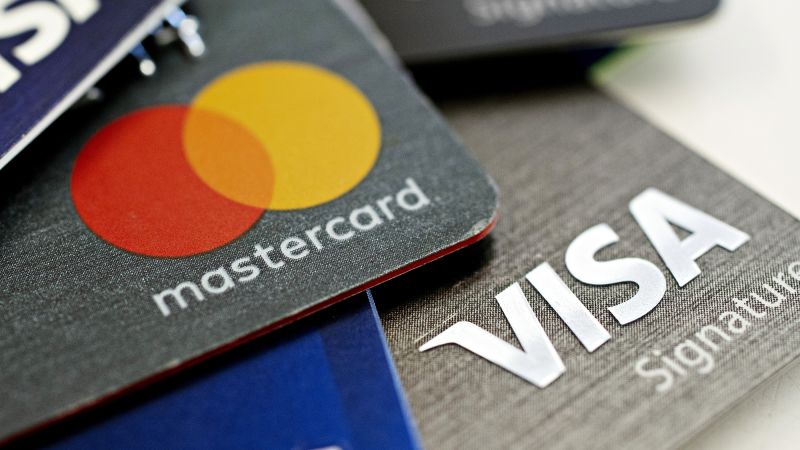Two of the world’s largest credit card networks, Visa and Mastercard, as well as the banks that issue cards with them, agreed to settle a decadeslong antitrust case brought upon by merchants.
The settlement is set to lower swipe fees merchants pay when customers make purchases using their Visa or Mastercard by $30 billion over five years, according to a press release announcing the settlement Tuesday morning.
The settlement, which only applies to US merchants, is the result of a lawsuit filed in 2005. However, nothing is considered finalized until it receives approval from the US District Court for the Eastern District of New York. Even then, the case can also be appealed in what could be a lengthy battle.
Typically swipe fees cost merchants 2% of the total transaction a customer makes but can be as much as 4% for some premium rewards cards, according to the National Retail Federation. The settlement would lower those fees by at least 0.04 percentage point for a minimum of three years.
Additionally, the settlement would require Visa and Mastercard to maintain the swipe fee rates that existed as of December 31, 2023 for five years.
Although merchants have long argued that swipe fees force them to charge higher prices, the settlement that would lower those fees, would not necessarily save consumers any money.
That’s because the settlement gives merchants the ability to impose surcharges on customers who have Mastercard or Visa cards that allow them to rack up rewards such as cash back and airline miles.
On the other hand, some cardholders could get discounts on goods and services since merchants would be able to make deals with banks to get them to use what they consider to be a preferred card.
Currently, merchants that accept Visa or Mastercard have to accept all forms of the companies’ cards.
The rewards Visa cardholders currently receive won’t be impacted, Kim Lawrence, Visa’s North America President, said in a statement Tuesday morning. Additionally, Americans’ access to credit won’t be more restricted as a result of the settlement, she said.
Seth Eisen, a spokesman for Mastercard, told CNN that rewards and credit access also would not be impacted by the settlement.
However, Jaret Seiberg, a TD Cowen analyst, said in a Tuesday note that the settlement “will represent a threat to credit card rewards and small banks.” That’s because he believes merchants will “steer customers to preferred credit cards.”
Tuesday’s news comes just one month after Discover (DFS) and Capital One (COF) announced a merger that — if approved by financial regulators and shareholders — would create the nation’s largest credit card company.
Shares of Visa (V) and Mastercard (MA) moved slightly higher Tuesday morning after the deal was announced.
This is a developing story and will be updated.
Read the full article here















